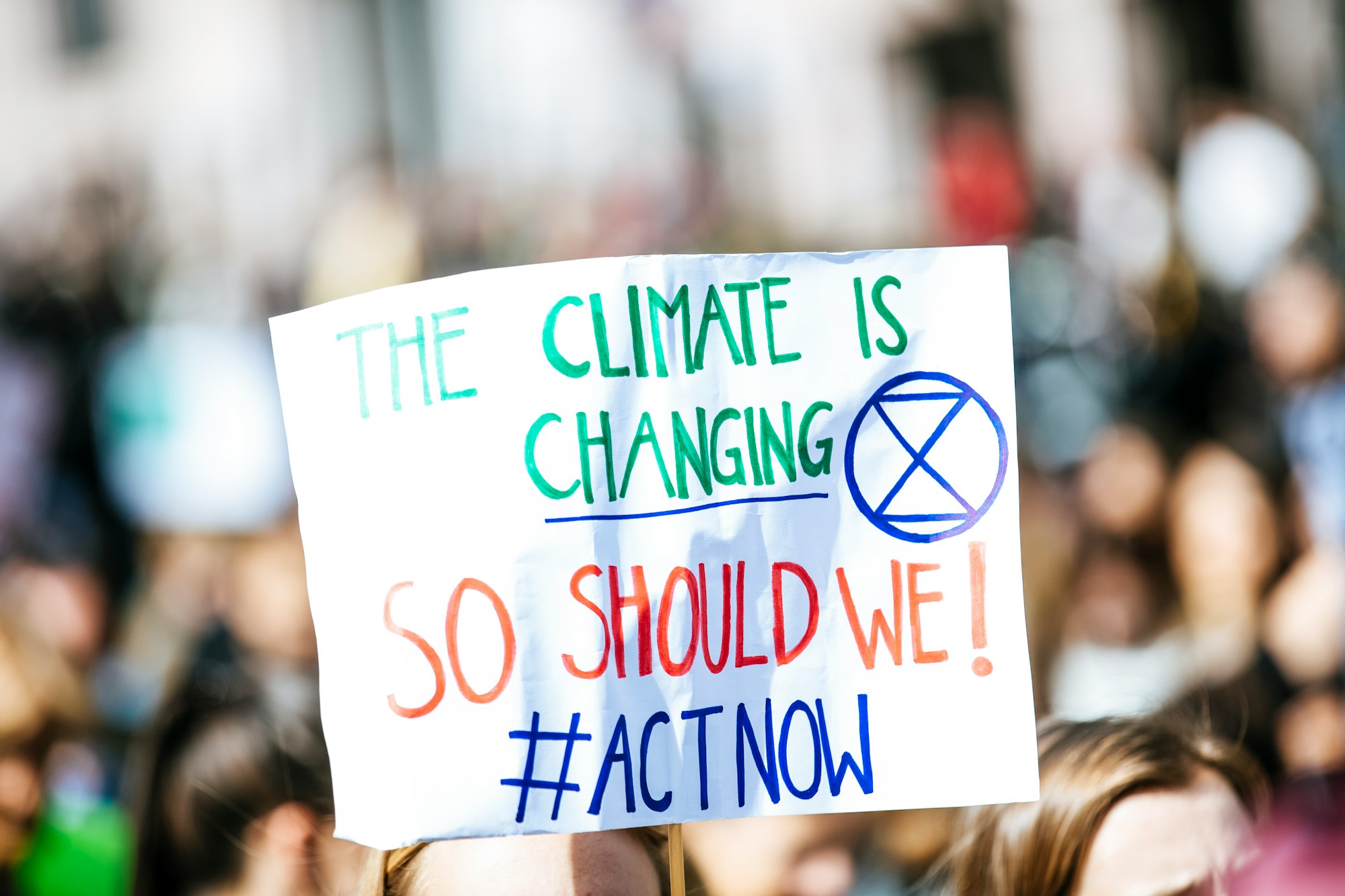
People are Worried. People Care.
What research from the World Economic Forum and Nature Climate Change have to say about climate risks (there's hope).
What research from the World Economic Forum and Nature Climate Change have to say about climate risks (there's hope).
Outline
Two new pieces of research survey the global view of our climate future; let’s take a look.
The first is 2024’s Global Risks Report, out last month from the World Economic Forum, which surveyed “1,490 experts across academia, business, government, the international community and civil society” to rank what risks they see for the coming years. It’s not a soothing read, so bear with us.
Environmental impacts dominated the list for the next decade. Specifically, the top three perceived risks were “extreme weather events,” “critical change to Earth systems,” and “biodiversity loss and ecosystem collapse.” For context, other items in the top 10 ranged from “societal polarization” to “involuntary migration” to “adverse outcomes of AI technology.”
The report includes several memorable insights. For instance, while respondents broadly agree the environment is a long-term concern, it’s particularly young people and those outside the private sector “who prioritize these risks over shorter time frames.”
That disconnect over just how urgent the problem is, the report continues, “implies sub-optimal alignment and decision-making, heightening the risk of missing key moments of intervention, which would result in long-term changes to planetary systems.” Indeed, there’s a whole sub-chapter on the possibility of passing one or more “climate tipping points” in the next decade. Yikes.
Remarkably, when asked to rank risks over a two-year period rather than a decade, “extreme weather events” only ranked second. Topping the list was “misinformation and disinformation,” and in third was “societal polarization.”
This brings us to the second piece of research we’ll look at today, which offers a glimmer of hope, and appears this month in Nature Climate Change.
Researchers “conducted a representative survey across 125 countries, interviewing nearly 130,000 individuals” and found “widespread support for climate action.” More than two-thirds are willing to pay out of their own pockets for it, while “89% demand intensified political action.” And the pattern is especially pronounced in countries vulnerable to climate change.
“This indicates that the world is united in its normative judgment about climate change and the need to act,” the authors state. But at the same time, “individuals around the globe systematically underestimate the willingness of their fellow citizens to act.”
To the extent that your willingness to take action hinges on the cooperation of others, this is a problem. The authors suspect it stems from, well, efforts to misinform and polarize the public—key risk areas we mentioned above. This is a case for intervention, the authors contend: “that is, a concerted political and communicative effort to correct these misperceptions.”
You taking climate action in whatever way you can, and talking to others about it, can be part of the solution. Chances are you’ll find, and perhaps even inspire, plenty of like-minded people along the way.
“Across the world, there is overwhelming support for climate action,” Project Drawdown’s Dr. Jonathan Foley wrote in reaction to the Nature Climate Change piece. “We aren’t polarized; we just think we are.”
To learn about to turning climate anxiety into climate action, enroll in Terra.do's Climate Change: Learning for Action.
More like this
So You're Ready to Step Up on Climate Action. Now What?
Folks ready to learn and do more about climate change have an array of options to get started. What are their respective pros and cons, and how does Terra.do stack up?
Our Next Cohort's Nickname Is the Manatees. Here's Why That's Special.
We've named each graduating class after animals at risk in our warming world, and we've just finished our first full lap through the alphabet.
Couldn’t We All Use More Storage?
Where are we going to put all that clean power from variable renewables like solar and wind? The world of batteries is already ramping up.

 Background
Background


